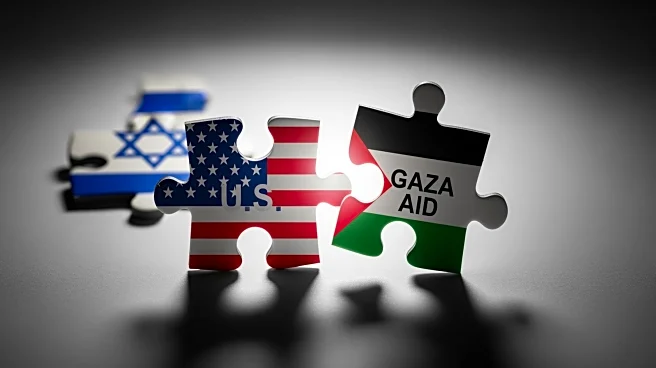What's Happening?
The U.S. military's coordination center in southern Israel has taken over the management of aid deliveries to Gaza, reducing Israel's role to a consultative one. This change, reported by The Washington
Post, shifts the responsibility from Israel's COGAT unit to the U.S., which will now make final decisions on aid entry. The transition has been described as chaotic, with the command center's operations in Kiryat Gat facing organizational challenges. Despite the cease-fire, Israel has continued to impose limitations on aid, complicating the delivery process. The U.S. is also advocating for a UN Security Council resolution to enshrine President Trump's Gaza cease-fire deal in international law.
Why It's Important?
The U.S.'s new role in managing Gaza aid is a pivotal shift in the region's humanitarian and political landscape. By taking control, the U.S. aims to improve aid delivery efficiency, but the move also highlights tensions between the U.S. and Israel regarding control over Gaza-related decisions. The potential adoption of a UN resolution could further entrench the U.S.'s influence in the region, affecting future peace negotiations and international relations. The situation underscores the complexities of Middle Eastern geopolitics, where humanitarian efforts are often intertwined with political strategies.
What's Next?
The U.S. is actively seeking to have the UN Security Council adopt a resolution that would formalize the Gaza cease-fire agreement, potentially leading to broader international support for the U.S.'s approach. However, the effectiveness of the new aid management system remains to be seen, as initial reports indicate operational disorganization. The international community will be watching closely to see if the U.S. can navigate these challenges and deliver on its promises of improved aid distribution, which could have lasting impacts on regional stability and humanitarian conditions.










